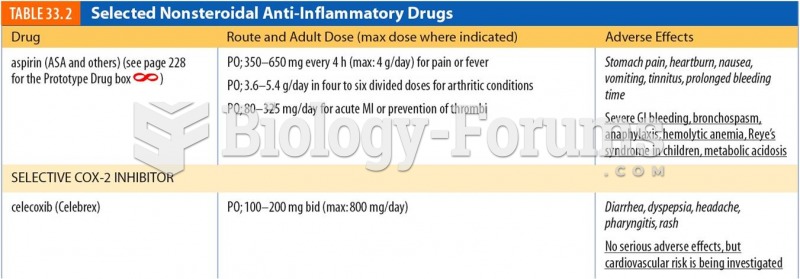|
|
|
In Eastern Europe and Russia, interferon is administered intranasally in varied doses for the common cold and influenza. It is claimed that this treatment can lower the risk of infection by as much as 60–70%.
More than 20 million Americans cite use of marijuana within the past 30 days, according to the National Survey on Drug Use and Health (NSDUH). More than 8 million admit to using it almost every day.
Pubic lice (crabs) are usually spread through sexual contact. You cannot catch them by using a public toilet.
The first documented use of surgical anesthesia in the United States was in Connecticut in 1844.
Asthma attacks and symptoms usually get started by specific triggers (such as viruses, allergies, gases, and air particles). You should talk to your doctor about these triggers and find ways to avoid or get rid of them.





![Chickenpox rash. (Centers for Disease Control and Prevention [CDC]/Ann Cain)](https://biology-forums.com/gallery/30/medium_548020_08_06_17_10_52_37_306981954.jpeg)

